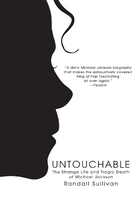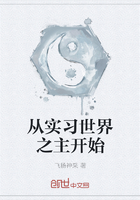This is what had taken place: We have seen that it was not of his own free will, but, on the contrary, very reluctantly, that the monk attended the wounded man who had been recommended to him in so strange a manner. Perhaps he would have sought to escape by flight had he seen any possibility of doing so. He was restrained by the threats of the two gentlemen and by the presence of their attendants, who doubtless had received their instructions. And besides, he considered it most expedient, without exhibiting too much ill-will, to follow to the end his role as confessor.
The monk entered the chamber and approached the bed of the wounded man. The executioner searched his face with the quick glance peculiar to those who are about to die and have no time to lose. He made a movement of surprise and said:
"Father, you are very young."
"Men who bear my robe have no age," replied the monk, dryly.
"Alas, speak to me more gently, father; in my last moments I need a friend."
"Do you suffer much?" asked the monk.
"Yes, but in my soul much more than in my body."
"We will save your soul," said the young man; "but are you really the executioner of Bethune, as these people say?"
"That is to say," eagerly replied the wounded man, who doubtless feared that the name of executioner would take from him the last help that he could claim—"that is to say, I was, but am no longer; it is fifteen years since I gave up the office. I still assist at executions, but no longer strike the blow myself—no, indeed."
"You have, then, a repugnance to your profession?"
"So long as I struck in the name of the law and of justice my profession allowed me to sleep quietly, sheltered as I was by justice and law; but since that terrible night when I became an instrument of private vengeance and when with personal hatred I raised the sword over one of God's creatures—since that day——"
The executioner paused and shook his head with an expression of despair.
"Tell me about it," said the monk, who, sitting on the foot of the bed, began to be interested in a story so strangely introduced.
"Ah!" cried the dying man, with all the effusiveness of a grief declared after long suppression, "ah! I have sought to stifle remorse by twenty years of good deeds; I have assuaged the natural ferocity of those who shed blood; on every occasion I have exposed my life to save those who were in danger, and I have preserved lives in exchange for that I took away. That is not all; the money gained in the exercise of my profession I have distributed to the poor; I have been assiduous in attending church and those who formerly fled from me have become accustomed to seeing me. All have forgiven me, some have even loved me; but I think that God has not pardoned me, for the memory of that execution pursues me constantly and every night I see that woman's ghost rising before me."
"A woman! You have assassinated a woman, then?" cried the monk.
"You also!" exclaimed the executioner, "you use that word which sounds ever in my ears—'assassinated!' I have assassinated, then, and not executed! I am an assassin, then, and not an officer of justice!" and he closed his eyes with a groan.
The monk doubtless feared that he would die without saying more, for he exclaimed eagerly:
"Go on, I know nothing, as yet; when you have finished your story, God and I will judge."
"Oh, father," continued the executioner, without opening his eyes, as if he feared on opening them to see some frightful object, "it is especially when night comes on and when I have to cross a river, that this terror which I have been unable to conquer comes upon me; it then seems as if my hand grew heavy, as if the cutlass was still in its grasp, as if the water had the color of blood, and all the voices of nature—the whispering of the trees, the murmur of the wind, the lapping of the wave—united in a voice tearful, despairing, terrible, crying to me, 'Place for the justice of God!'"
"Delirium!" murmured the monk, shaking his head.
The executioner opened his eyes, turned toward the young man and grasped his arm.
"'Delirium,'" he repeated; "'delirium,' do you say? Oh, no! I remember too well. It was evening; I had thrown the body into the river and those words which my remorse repeats to me are those which I in my pride pronounced. After being the instrument of human justice I aspired to be that of the justice of God."
"But let me see, how was it done? Speak," said the monk.
"It was at night. A man came to me and showed me an order and I followed him. Four other noblemen awaited me. They led me away masked. I reserved the right of refusing if the office they required of me should seem unjust. We traveled five or six leagues, serious, silent, and almost without speaking. At length, through the window of a little hut, they showed me a woman sitting, leaning on a table, and said, 'there is the person to be executed.'"
"Horrible!" said the monk. "And you obeyed?"
"Father, that woman was a monster. It was said that she had poisoned her second husband; she had tried to assassinate her brother-in-law; she had just poisoned a young woman who was her rival, and before leaving England she had, it was believed, caused the favorite of the king to be murdered."
"Buckingham?" cried the monk.
"Yes, Buckingham."
"The woman was English, then?"
"No, she was French, but she had married in England."
The monk turned pale, wiped his brow and went and bolted the door. The executioner thought that he had abandoned him and fell back, groaning, upon his bed.
"No, no; I am here," said the monk, quickly coming back to him. "Go on; who were those men?"
"One of them was a foreigner, English, I think. The four others were French and wore the uniform of musketeers."
"Their names?" asked the monk.
"I don't know them, but the four other noblemen called the Englishman 'my lord.'"
"Was the woman handsome?"
"Young and beautiful. Oh, yes, especially beautiful. I see her now, as on her knees at my feet, with her head thrown back, she begged for life. I have never understood how I could have laid low a head so beautiful, with a face so pale."
The monk seemed agitated by a strange emotion; he trembled all over; he seemed eager to put a question which yet he dared not ask. At length, with a violent effort at self-control:
"The name of that woman?" he said.
"I don't know what it was. As I have said, she was twice married, once in France, the second time in England."
"She was young, you say?"
"Twenty-five years old."
"Beautiful?"
"Ravishingly."
"Blond?"
"Yes."
"Abundance of hair—falling over her shoulders?"
"Yes."
"Eyes of an admirable expression?"
"When she chose. Oh, yes, it is she!"
"A voice of strange sweetness?"
"How do you know it?"
The executioner raised himself on his elbow and gazed with a frightened air at the monk, who became livid.
"And you killed her?" the monk exclaimed. "You were the tool of those cowards who dared not kill her themselves? You had no pity for that youthfulness, that beauty, that weakness? you killed that woman?"
"Alas! I have already told you, father, that woman, under that angelic appearance, had an infernal soul, and when I saw her, when I recalled all the evil she had done to me——"
"To you? What could she have done to you? Come, tell me!"
"She had seduced and ruined my brother, a priest. She had fled with him from her convent."
"With your brother?"
"Yes, my brother was her first lover, and she caused his death. Oh, father, do not look in that way at me! Oh, I am guilty, then; you will not pardon me?"
The monk recovered his usual expression.
"Yes, yes," he said, "I will pardon you if you tell me all."
"Oh!" cried the executioner, "all! all! all!"
"Answer, then. If she seduced your brother—you said she seduced him, did you not?"
"Yes."
"If she caused his death—you said that she caused his death?"
"Yes," repeated the executioner.
"Then you must know what her name was as a young girl."
"Oh, mon Dieu!" cried the executioner, "I think I am dying. Absolution, father! absolution."
"Tell me her name and I will give it."
"Her name was——My God, have pity on me!" murmured the executioner; and he fell back on the bed, pale, trembling, and apparently about to die.
"Her name!" repeated the monk, bending over him as if to tear from him the name if he would not utter it; "her name! Speak, or no absolution!"
The dying man collected all his forces.
The monk's eyes glittered.
"Anne de Bueil," murmured the wounded man.
"Anne de Bueil!" cried the monk, standing up and lifting his hands to Heaven. "Anne de Bueil! You said Anne de Bueil, did you not?"
"Yes, yes, that was her name; and now absolve me, for I am dying."
"I, absolve you!" cried the priest, with a laugh which made the dying man's hair stand on end; "I, absolve you? I am not a priest."
"You are not a priest!" cried the executioner. "What, then, are you?"
"I am about to tell you, wretched man."
"Oh, mon Dieu!"
"I am John Francis de Winter."
"I do not know you," said the executioner.
"Wait, wait; you are going to know me. I am John Francis de Winter," he repeated, "and that woman——"
"Well, that woman?"
"Was my mother!"
The executioner uttered the first cry, that terrible cry which had been first heard.
"Oh, pardon me, pardon me!" he murmured; "if not in the name of God, at least in your own name; if not as priest, then as son."
"Pardon you!" cried the pretended monk, "pardon you! Perhaps God will pardon you, but I, never!"
"For pity's sake," said the executioner, extending his arms.
"No pity for him who had no pity! Die, impenitent, die in despair, die and be damned!" And drawing a poniard from beneath his robe he thrust it into the breast of the wounded man, saying, "Here is my absolution!"
Then was heard that second cry, not so loud as the first and followed by a long groan.
The executioner, who had lifted himself up, fell back upon his bed. As to the monk, without withdrawing the poniard from the wound, he ran to the window, opened it, leaped out into the flowers of a small garden, glided onward to the stable, took out his mule, went out by a back gate, ran to a neighbouring thicket, threw off his monkish garb, took from his valise the complete habiliment of a cavalier, clothed himself in it, went on foot to the first post, secured there a horse and continued with a loose rein his journey to Paris.















